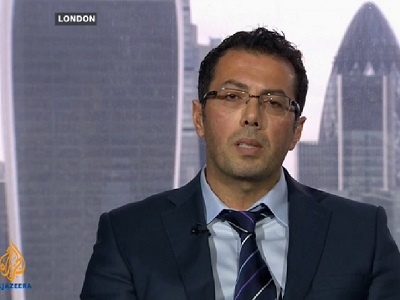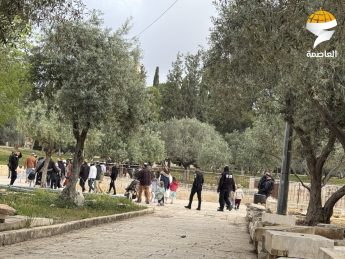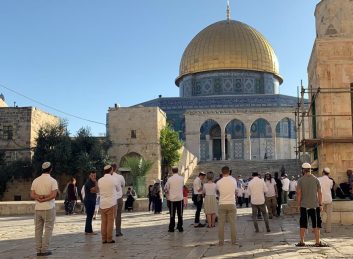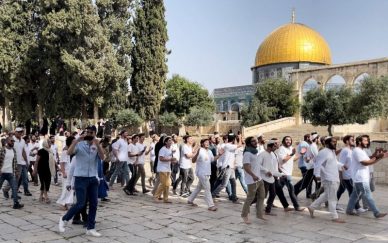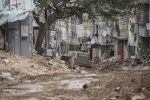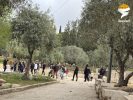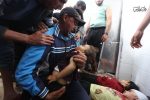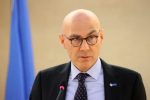‘While the resolution will unlikely alter the nature of the conflict fundamentally it rejects – legally and morally – all Israeli efforts aimed at denying the rights of Muslims – and Christians – in their city which they aspire to make their future capital’ said Ramzy Baroud the editor of Palestine Chronicle.
In an interview with Muslim Press Dr. Ramzy Baroud discusses Israeli Palestinian conflict and UNESCO’s latest resolution that strongly condemn the Israeli regime as well as Shimon Peres’ legacy for the Palestinians.
In what follows full transcription of the interview has been provided.
Muslim Press: Dr. Ramzy Baroud What’s your take on UNESCO’s latest resolution that strongly condemns Israel and its aggression against Palestinians? How would this measure change Israeli-Palestinian conflict?
Ramzy Baroud: First let me clarify some misunderstanding regarding the UNESCO resolution.
The resolution as Israel and its supporters claim didn’t deny Jewish links to Jerusalem. To the contrary it emphasized the spiritual and religious important of Jerusalem to the three monotheistic religions Christianity Islam and Judaism.
What it did however is that it emphasized the Muslim Arabic heritage of al-Aqsa Mosque using the Arabic wording for it – Al-Aqsa Mosque not the ‘Temple Mount’ as Jews prefer to call it.
This is important. Why? Because Israel – the government in Tel Aviv the municipality of the Israeli occupation in the city itself and well-funded religious extremist groups – have constantly plotted to achieve the opposite of what UNESCO resolved:
– Deny Muslim worshipers access to their holy sites in Haram al-Sharif compound – which includes among numerous religious sites the Dome of the Rock Mosque and al-Aqsa Mosque.
– Facilitate ‘visits’ for religious Jewish fanatics joined by armed Israeli army and police forces to the Muslim sites.
– Reject the obvious Muslim connection to that holy place and emphasize religious myths that propagate the existence of a third Jewish temple under the Mosque; the ultimate objective being to demolish the Mosque and rebuild the alleged temple.
– Continue to dig under al-Haram and other parts of historic Jerusalem in search for any evidence that supports the ‘Third Temple’ claims.
Hundreds of Muslims were killed while trying to defend the mosque over the years and al-Aqsa in particular has become a symbol of Palestinian Resistance.
The UNESCO resolution – which also insists on the illegality of the Israeli occupation and annexation of Arab East Jerusalem – was a blow to Israeli efforts aimed at the complete judaization of the Palestinian city.
While the resolution will unlikely alter the nature of the conflict fundamentally it rejects – legally and morally – all Israeli efforts aimed at denying the rights of Muslims – and Christians – in their city which they aspire to make their future capital.
MP: Benjamin Netanyahu has said that “UNESCO has lost its legitimacy by adopting this resolution”. What could you say about his reaction to this resolution? How do you see the future of Israeli relations with UNESCO and the UN?
Ramzy Baroud: Netanyahu says a lot of things. He has always been quite belligerent and is hardly cautious with the language he uses. For example his annual speeches before the UN itself is a constant attempt at delegitimizing the world’s leading international institution. It is his only defense mechanism as he feels – rightly so – that Palestinian efforts combined with their efforts of their friends and allies have succeeded in delegitimizing his military occupation and his apartheid regime.
In fact after a UNESCO decision to admit Palestine as a member state in 2011 Israeli hasbra went into full swing with attacks on UNESCO the UN and the international community as a whole. Then the US gutlessly bowed to Israeli pressure and decided to cut off its funding of the organization. Yet somehow UNESCO carried on as it will continue with its important work despite Israel’s recent decision to suspend its membership in the organization.
Of course we now expect even a greater Israeli push in Jerusalem to further challenge the international community’s will. There will be more restrictions on Palestinians and easier access to Jews which will be accompanied by more military deployment and subsequent violence.
MP: How would you describe Shimon Peres’ legacy for Palestinians? Do you consider him as a champion of peace?
Ramzy Baroud: Peres was never truly a peacemaker – he never labored to achieve fair and just political compromises that would preserve the dignity and rights of the Palestinians along with securing the future of his people. In fact he was a maximalist a man who blatantly shoved his ideas forward in order to achieve his goals no matter what the method or the price.
Nor was he a leader with a specific qualities that allowed him to excel in particular fields of politics. Instead he was the embodiment of the archetypical Israeli politician who swapped roles and rebranded himself as the occasion or role required.
Although he is remembered for his ordering of the bombing of a UN shelter in the Lebanese village of Qana in 1996 – which killed and wounded hundreds of innocent people – the list of war crimes associated with his name is as long as his career. He remained until the very end a staunch supporter of the Israeli right-wing government’s wars on Gaza and the perpetual siege on that impoverished forsaken region.
MP: Do you see a conflict between how the mainstream Western media portray him and who he really was?
Ramzy Baroud: The Israelis and many in mainstream Western media praised Peres as a hero stately and a peacemaker.
Part of that assessment was the outcome of simply bad journalism. Peres was merely a brand that was hardly consistent with his actual legacy. He won the Nobel Peace Prize and gave many speeches at international forums in which he spoke about the need to make painful compromises for peace. Many journalists simply used that along with his carefully tailored Wikipedia page to reach conclusions.
However much of the coverage was intentionally misguided and is consistent with how mainstream media portray Israel in general. Let us not forget that the media made a hero out of Ariel Sharon as well the brutal Israeli leader whose long career was saturated in violence – in words and deeds.
For Palestinians however both were war criminals and their heroism is always founded on entrenching the occupation expanding Jewish colonies and erecting a system of apartheid sustained by racist laws and violent occupation.
–Dr. Ramzy Baroud is a US-Arab journalist media consultant an author internationally-syndicated columnist Editor of Palestine Chronicle (1999-present) former Managing Editor of London-based Middle East Eye (2014-15) former Editor-in-Chief of The Brunei Times former Deputy Managing Editor of Al Jazeera online.

